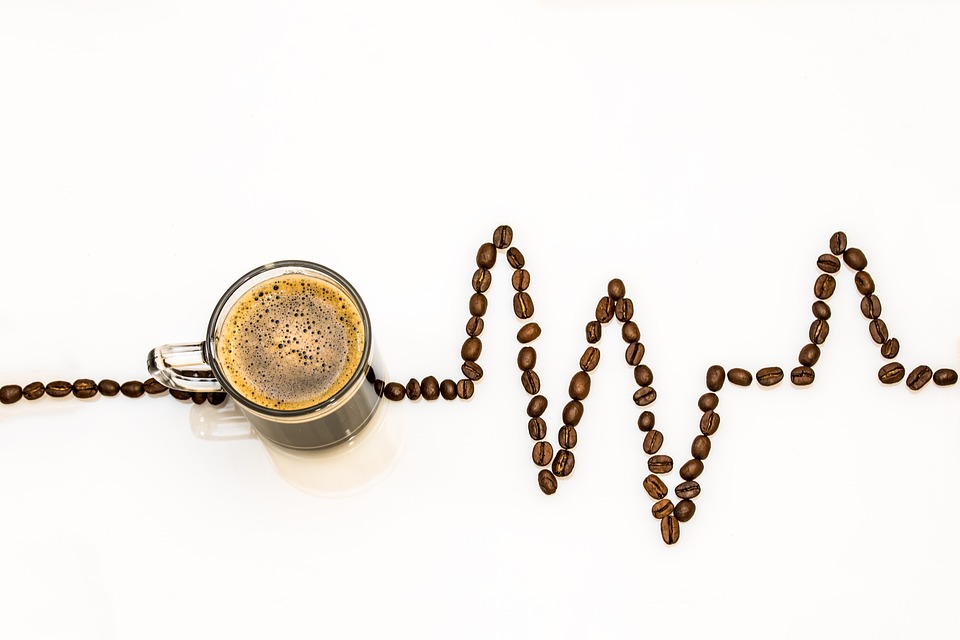What do the latest studies say about how caffeine affects our brain?
Do you really like coffee and energy drinks? It is time to know how our brain is affected by the key substance in these drinks: caffeine. Although it is not an addictive substance in its entirety, its regular consumption leaves marks on our body that we must know, which is why today in our blog we want to talk to you about what the latest studies say about how caffeine affects our brain.  The study in question, published in the journal Cerebral Cortex at the beginning of 2021, was carried out with 20 regular daily caffeine consumers who were offered capsules with a net content of 150gr of caffeine 3 times a day for 10 days. preventing them from consuming other sources of caffeine. After this process, they repeated the same but this time they were offered placebos capsules, that is, without caffeine since these were made of sugar. At the end of this period, they carried out a functional magnetic resonance imaging (fMRI) study of their brains, as well as studying their brain activity while they were sleeping. How did caffeine affect the brains of the people studied? It turned out that after ingesting caffeine the gray matter, the brain, was reduced in certain areas of the brain related to memory, such as the hippocampus, fusiform gyrus and parahippocampus. But these effects are not permanent, because during the period in which the volunteers were offered the placebo capsules, the brain returned to its normal state.
The study in question, published in the journal Cerebral Cortex at the beginning of 2021, was carried out with 20 regular daily caffeine consumers who were offered capsules with a net content of 150gr of caffeine 3 times a day for 10 days. preventing them from consuming other sources of caffeine. After this process, they repeated the same but this time they were offered placebos capsules, that is, without caffeine since these were made of sugar. At the end of this period, they carried out a functional magnetic resonance imaging (fMRI) study of their brains, as well as studying their brain activity while they were sleeping. How did caffeine affect the brains of the people studied? It turned out that after ingesting caffeine the gray matter, the brain, was reduced in certain areas of the brain related to memory, such as the hippocampus, fusiform gyrus and parahippocampus. But these effects are not permanent, because during the period in which the volunteers were offered the placebo capsules, the brain returned to its normal state.
The researchers also commissioned the volunteers to perform a series of tasks about working memory, where the volunteers demonstrated better performance during the period when they consumed the capsules without caffeine. This study does not mean that caffeine is totally harmful to our brain, but rather that it can affect the cognitive effect of our brain, with totally reversible results of course, so our brain works much better in the absence of caffeine, to Although, when we consume it, we believe that we enhance our body by providing it with more energy, increasing our alertness.
To see more articles about these topics or others, keep coming back to Latino Gringos™. Make sure to follow us on our Instagram or Facebook to know when we upload new articles or videos.
If you know anyone that might benefit from our articles, even if they are not Latino, please share with them. We love our Latino community, but also like helping anyone that needs it.
¿Qué dicen los últimos estudios sobre cómo afecta la cafeína a nuestro cerebro?
¿te gusta mucho el café y las bebidas energéticas? Es momento de conocer como nuestro cerebro se ve afectado por la sustancia clave de esas bebidas: la cafeína. Aunque no es una sustancia adictiva en su totalidad, su consumo regular deja marcas en nuestro organismo que debemos conocer, razón por la cual hoy en nuestro blog queremos hablarles sobre lo que dicen los últimos estudios de como la cafeína afecta a nuestro cerebro.  El estudio en cuestión, publicado en la revista Cerebral Cortex a comienzos de 2021, se llevó a cabo con 20 consumidores regulares de cafeína diaria a quienes se les ofreció durante 10 días unas capsulas con un contenido neto de 150gr de cafeína 3 veces al día, evitando que consumieran otras fuentes de cafeína. Finalizado este proceso, repitieron el mismo pero esta vez les ofrecieron capsulas placebos, es decir, sin cafeína pues estas eran de azúcar. Finalizado este periodo realizaron un estudio de imágenes de resonancia magnética funcional (fMRI) a sus cerebros, así como estudiar su actividad cerebral al dormir. ¿Cómo afecto la cafeína al cerebro de las personas estudiadas? Resulto que tras la ingesta de cafeína la materia gris, el cerebro, se redujo en ciertas zonas del cerebro relacionadas con la memoria, como el hipocampo, circunvolución fusiforme y parahipocampo. Pero estos efectos no son permanentes, pues durante el periodo en que se les ofreció a los voluntarios las capsulas placebo, el cerebro regreso a su estado normal.
El estudio en cuestión, publicado en la revista Cerebral Cortex a comienzos de 2021, se llevó a cabo con 20 consumidores regulares de cafeína diaria a quienes se les ofreció durante 10 días unas capsulas con un contenido neto de 150gr de cafeína 3 veces al día, evitando que consumieran otras fuentes de cafeína. Finalizado este proceso, repitieron el mismo pero esta vez les ofrecieron capsulas placebos, es decir, sin cafeína pues estas eran de azúcar. Finalizado este periodo realizaron un estudio de imágenes de resonancia magnética funcional (fMRI) a sus cerebros, así como estudiar su actividad cerebral al dormir. ¿Cómo afecto la cafeína al cerebro de las personas estudiadas? Resulto que tras la ingesta de cafeína la materia gris, el cerebro, se redujo en ciertas zonas del cerebro relacionadas con la memoria, como el hipocampo, circunvolución fusiforme y parahipocampo. Pero estos efectos no son permanentes, pues durante el periodo en que se les ofreció a los voluntarios las capsulas placebo, el cerebro regreso a su estado normal.
Los investigadores, además, encargaron a los voluntarios el realizar una serie de tareas acerca de la memoria de trabajo, donde los voluntarios demostraron un mejor desempeño durante el periodo donde consumían las capsulas sin cafeína. Este estudio no quiere decir que la cafeína sea totalmente dañina para nuestro cerebro, si no que esta puede afectar el efecto cognitivo de nuestro cerebro, con resultados totalmente reversibles por supuesto, por lo que nuestro cerebro trabaja mucho mejor ante la ausencia de cafeína, a pesar de que, cuando la consumimos, creemos que potenciamos nuestro organismo al dotarlo de más energía, aumentando nuestro estado de alerta.
Para ver más artículos sobre estos temas u otros, siga visitando Latino Gringos™. Asegúrese de seguirnos en nuestro Instagram o Facebook para saber cuándo cargamos nuevos artículos o vídeos.
Si conoces a alguien que pueda beneficiarse de nuestros artículos, incluso si no son latinos, compártelo con ellos. Amamos a nuestra comunidad latina, pero también nos gusta ayudar a cualquiera que la necesite.






